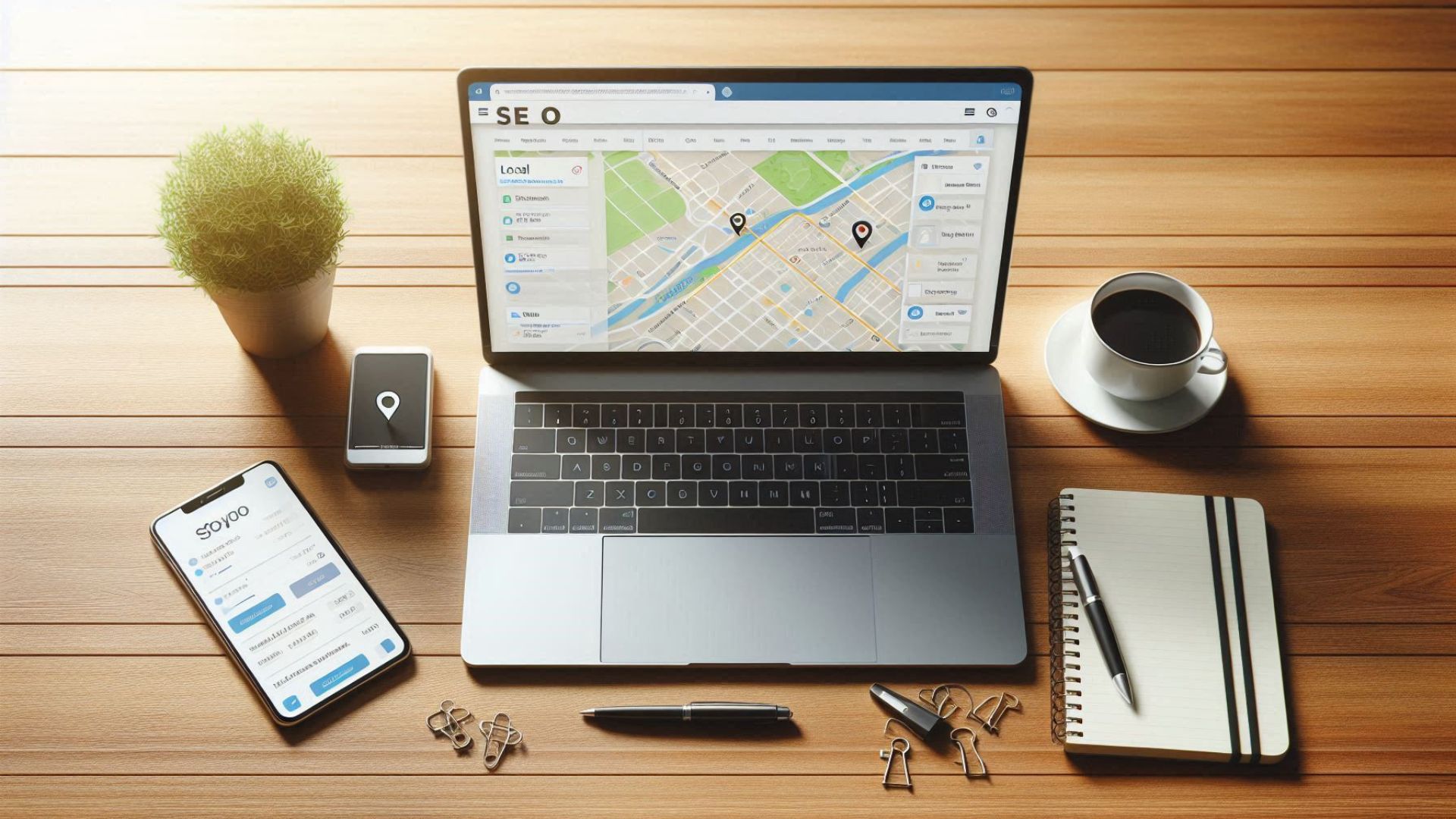Tracking your local SEO performance is super important. It helps you see what’s working, what’s not, and what you can improve to get better results.
Yes, the main goal of local SEO is to get more leads and boost revenue. But there are a bunch of other important metrics that show how well your strategy is performing.
One of the easiest ways to keep an eye on everything is by using a local rank tracker like Local Falcon. It helps you monitor key metrics and see how your business is doing in local search results.
9 Key Metrics to Watch for Local SEO Success

1. Local Pack Rankings
This is all about where your business shows up in the Google Maps section at the top of search results (also called the “local pack”). Ranking higher here can really boost your visibility, traffic, leads, and conversions.
Local Falcon gives you something called a Share of Local Voice (SoLV) score. It tells you how often your business appears in the local pack compared to competitors. The higher your SoLV score, the better you’re doing!

Also Read: How do Premium Tools Compare?
2. Organic Rankings
Keep track of how your website ranks for local keywords in regular (organic) search results. Tools like Google Search Console are perfect for monitoring this over time.
3. Website Traffic
Check how much traffic is coming to your site from organic search—especially from local searches. Use Google Analytics to dig into the data and spot trends.
4. Google Business Profile Insights
Your Google Business Profile offers valuable insights like how many people click your website, call you, or ask for directions. These actions show real interest from potential customers.
5. Local Citations
Your business should have consistent information (name, address, phone number) across different sites and directories. These are called local citations. If your info is inconsistent, it could hurt your SEO performance. There are tools that can help you keep this info accurate across the web.
6. Customer Reviews and Ratings
Keep an eye on your reviews and ratings on platforms like Google, Yelp, and Facebook. More positive reviews—and a better average rating—can help you outrank local competitors.
Local Falcon lets you compare your reviews and ratings with other businesses in your area. It’s a great way to see how you stack up.
7. Local Backlinks
Backlinks from other local websites are a strong ranking factor. It’s not just about quantity—quality matters too. So, track who’s linking to you and look for new local linking opportunities.
8. Local Search Traffic
Use Google Analytics to find out how much of your traffic is coming from local search queries. If that number’s going up, your local SEO efforts are likely paying off.

Also Read: How to Leverage Keyword Research Tools?
9. Conversion Rate
This is about what people do after they land on your site. Are they calling you? Booking an appointment? Filling out a form? Tracking conversions helps you understand how well your website turns visitors into customers.
How Local Falcon Helps You Track Local Rankings
Local Falcon is a powerful tool that gives you different types of reports to help you understand your performance better. Here’s a quick breakdown of what it offers:

1. Scan Reports
These reports give you a snapshot of how your business is doing in local searches. You choose the location, keyword, and area to scan, and it shows where you rank in the local pack.
You’ll see useful data like:
- Average Rank Position
- Total Rank Position
- Share of Local Voice (SoLV)
Plus, it includes tips from Falcon AI, their built-in AI tool, that suggests how you can improve your listing and outrank competitors.
2. Competitor Reports
These reports show how your competitors are ranking. You can compare their SoLV scores with yours and figure out what it’ll take to move ahead of them. As you make updates to your SEO, check these reports to see if you’re climbing the ranks.
3. Trend Reports
If you run scans regularly, Trend Reports show how your performance changes over time. It’s great for spotting what’s working and where you might be slipping. You’ll also get Falcon AI’s advice based on your trends.
4. Keyword Reports
If you have multiple locations, Keyword Reports help you track how a specific keyword is performing across all of them. Perfect if you’re trying to rank for the same terms in different areas.
5. Location Reports
These give you a full view of how one specific location is doing for all the keywords you’re tracking. It’s an easy way to see that location’s overall performance at a glance.

Also Read: Can Automation Tools Save SEO Time?
Final Thoughts
Tracking your local SEO results doesn’t have to be complicated. By focusing on the right metrics and using a tool like Local Falcon, you can clearly see what’s working, make smarter decisions, and steadily improve your visibility in local searches.
Want help setting up a system to track your own local SEO performance? I can help with that too.





